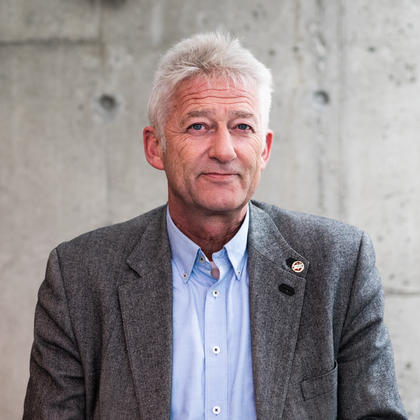The Nordic Engineer Officer Federation 15th Congress
PRESS RELEASE
The Nordic Engineer Officer Federation (NMF) founded 1919, represents approx. 30000 engineer officers in Denmark, Sweden, Norway, Finland, Iceland and the Faroe Islands.
NMF cooperates in several areas with common challenges in the Nordic countries. Especially in the fields of energy and environmental technology, IT and management in energy and environmental sectors, the public sector, shipping, the offshore sector and the industry in the Nordic countries.
NMF focuses on recruitment efforts in the Nordic countries and strengthens cooperation on the development of the education of engineer officers. NMF also strengthens the coordination of the collective bargaining negotiations and development of wages and employment conditions in the Nordic region.
The Nordic Engineer Officer Federation 15th Congress, 24.10 2022 in Stockholm have decided to support the Joint Declaration of Intention by the Nordic Navigators on Improved Maritime Safety in the Arctic, whit the following bullets point also approved by ITF MSC in October 2022, to ensure safety for all who have their work on board this type of ship operating in polar waters;
• Until it’s mandatory in the Polar Code, all designated and assigned duties of persons who serve on this type of ship operating in polar waters, shall have adequate training and familiarization.
• In order to avoid criminalization of the Chief engineer and his engineer officers, it must be ensured that all technical equipment, especially environmental cleaning equipment, such as ballast water, cooling water, scrubbers, separators, waste incinerators etc. is constructed and designed for operation in polar waters and approved and verified in accordance with MARPOL and/or other relevant regulations.
• Safety dynamics of ship’s energy sources must be highlighted
Contact person: Odd Rune Malterud
+47 913 21 563 - orm@dnmf.no
Enclosed is the Joint Declaration of Intention by the Nordic Navigators on Improved Maritime Safety in the Arctic
Joint Declaration of Intention by the Nordic Navigators on Improved Maritime Safety in the Arctic
The number of ships operating in Arctic waters grew by 25 per cent between 2013 and 2019, and the distance they sailed increased by 75 per cent, according to a WWF report. This increase in shipping in the Arctic combined with changing weather and ice conditions means that there is an increasing threat to the safety of crew and passengers onboard ships operating in Arctic waters.
The current geopolitical situation also causes concerns about the future collaboration between the Arctic states and the consequences for security in the region. With the Arctic Council currently pausing its activities and a future where all its members except for Russia will be in NATO, focus is likely to shift even more towards security policy, and collaboration on topics such as search and rescue, Arctic shipping and environment may be hindered.
The Nordic Navigators - an association of navigator unions from Finland, Norway, Sweden, Iceland, Denmark and the Faroe Islands - share the concerns about Arctic safety expressed by several organizations working on maritime safety and environment in the Arctic. We wish to work together with other maritime stakeholders on recommendations to improve the Polar Code with an even stronger focus on safety and implementation of current regulations.
Prevention is better than cure. Those of our members who are sailing in Arctic waters are the ones – together with passengers – who are at the greatest risk from lack of safety in Arctic shipping. The Nordic Navigators therefore call on maritime authorities in the Arctic states and flag states involved in Arctic shipping to consider the following improvements to Arctic maritime safety:
Improved implementation
• The Polar Code should include more specific tools for monitoring compliance in order to ensure that its rules and regulations are implemented by all flag states – also those that are new to Arctic shipping.
• Since the new rules for Non SOLAS ships sailing in the Arctic will not be put into force until 2026, all flag states are encouraged to implement the rules as soon as possible.
Stricter requirements
• Cruise ships and tankers should only be allowed to operate in surveyed routes.
• It should be considered whether the Polar Code could cover a larger area to include Arctic waters with seasonal ice.
• Requirements for survival equipment and other necessary resources (food, water, space etc.) should be more specific so that crews can get by onboard for a minimum of five days in case of an accident.
Improved communication
• All Polar Code publications should be in clear and concise language.
• Data from successful voyages in the Arctic should be collected and shared for lessons learned and training purposes.
• Improved and harmonized communications systems are needed.
Improved education
• Increased shipping in the Arctic means there will be more navigators without Arctic experience sailing in Arctic waters. Maintaining mandatory training is therefore crucial, and all navigators in Arctic waters should receive courses in ice navigation.
• Requirements for ice navigations courses should be higher with a focus on specific competencies, but also on independent thinking and risk assessment. Practical training should be weighed over PowerPoint presentations and course requirements should be specific enough to ensure consistent teaching regardless of country and course provider.
• Experience and ability to read the situation and act accordingly is one of the most important parameters for safety in Arctic shipping. It should be considered to introduce requirements for mariners with no Arctic experience to join crews with Arctic experience in order to ensure practical training. It could also be considered to introduce graduated ice certificates so that mariners with sufficient practical experience are allowed to sail outside surveyed routes while those with only theoretical experience are not.
